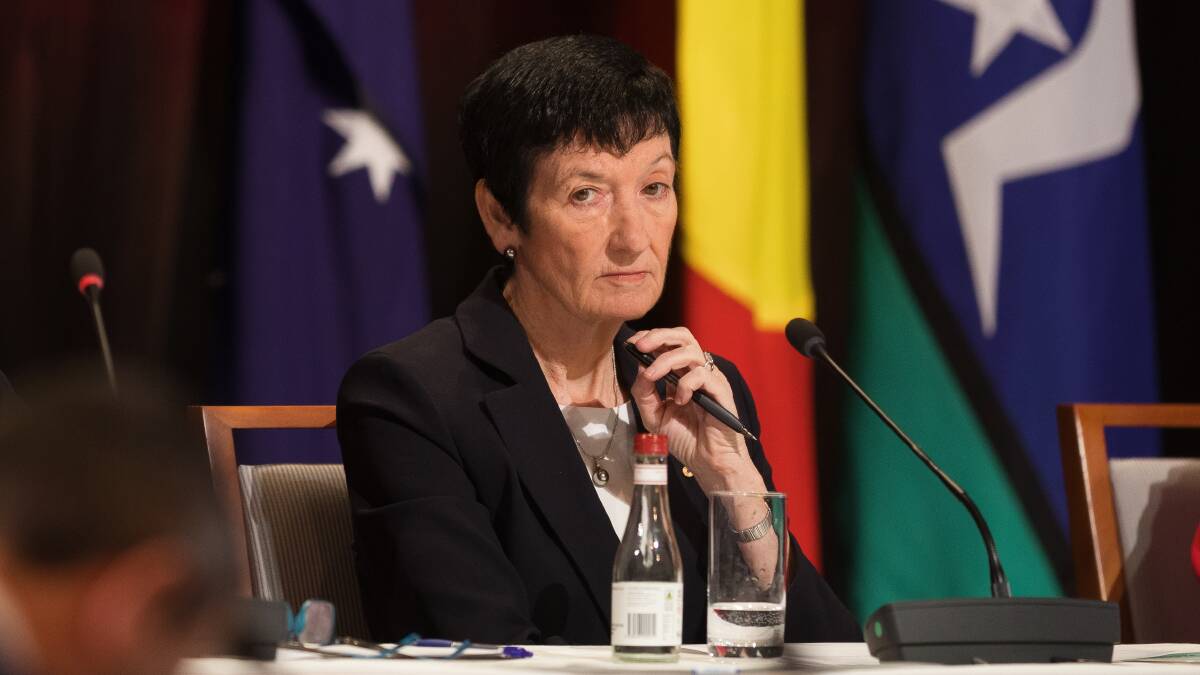
The federal government says it is working "as collaboratively as we can" with state, territory and local governments to boost the supply of new homes amid warnings that the housing shortfall will intensify in the next five years.
Subscribe now for unlimited access.
or signup to continue reading
Housing Minister Julie Collins said the federal government had commenced talks with the other levels of government about reforms under the National Housing Accord to improve planning and other processes slowing the supply of dwellings.
"We already started that important work ... about improving the time it takes to get more homes on the ground right across the country," Ms Collins told the ABC.
The minister was commenting following the release of Business Council of Australia analysis showing that the supply of new homes, particularly apartments, has been slowing since 2016 and is set to get worse.
In a dire outlook for those struggling to find affordable accommodation to rent or purchase, the BCA warned that the housing shortfall would intensify in the next five years and would be particularly acute for multi-unit dwellings, where demand was set to outstrip supply for the next decade.
The housing crisis has been exacerbated by a surge in interest rates, which has coincided with a steep decline in financing and approval for new housing. Australian Bureau of Statistics figures show just 12,686 new homes were approved in March, 17 per cent fewer than a year earlier and almost half the number approved at the height of the boom in early 2021.
The BCA cautioned that its assessment did not fully reflect the post-pandemic population surge, which would add to demand and upward pressure on rents and purchase prices.
"There is simply not enough new homes being built to meet demand at a time when housing affordability is declining. In fact, new housing supply has been falling over the last half-decade," BCA chief executive Jennifer Westacott said. "There needs to be a clear plan for building new homes and infrastructure that is aligned with the growth in Australia's population."
In its budget, the government flagged there would be an extra 715,000 arrivals from net overseas migration through this financial year and 2023-24, fueling concerns about the pressure on already very tight housing markets.
But the BCA said it was wrong to blame the housing shortage on migrants, arguing the current surge will be short-lived and still leave the population 215,000 smaller than it would have been without the pandemic.
Instead, the business group leveled the blame at state, territory and local government planning restrictions.
"Poor performing planning systems and restrictive zoning significantly impact the delivery of new housing supply," the BCA said.
READ MORE:
It has called on the federal government to set national housing targets backed by penalties for state, territory and local governments that fail to meet them.
Ms Collins stopped short of endorsing endorsing the idea but said "there's a call for planning ministers to be meeting before the end of the year to actually look at what reforms they can do in each state and territory to help get more supply on the ground more quickly".
Nationals leader David Littleproud backed the BCA's analysis that restrictive planning rules was "where there's market failure".
"I'm not really having a crack at the federal government on this. It's an abject failure of state and local governments that we've got ourselves into this situation," Mr Littleproud said.
Nonetheless, he criticised the federal government's $10 billion Housing Australia Future Fund, under which the proceeds of investment would be used to fund 30,000 social and affordable homes over five years, as a "failed policy".
"That's a silly way to try and address supply," the Nationals leader said.
Legislation to establish the fund is stranded in the Senate, where its passage has been blocked by the Coalition and the Greens.
Prime Minister Anthony Albanese called on the two political parties to "just come to their common sense and vote for the plan".
"We need to address supply and the truth is that the Greens political party would rather posture than vote for what is before the parliament," the Prime Minister said.
Ms Collins said the government was "in negotiations and discussions" to have the legislation passed.
But opposition treasury spokesman Angus Taylor condemned the fund as "a Ponzi scheme. This is not a solution to the problem".
"Labor does not have a plan for an additional 1.5 million migrants over the coming years and that is very frustrating for Australians," Mr Taylor said.


